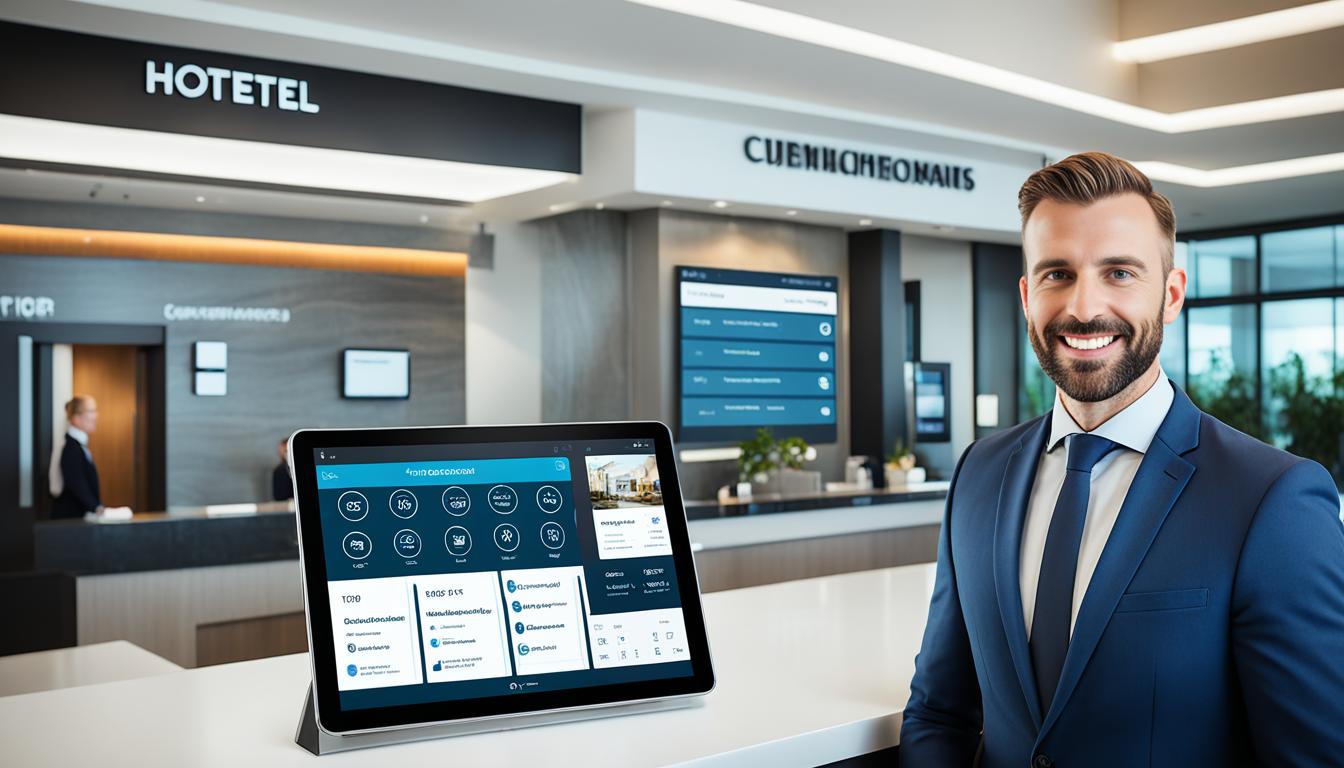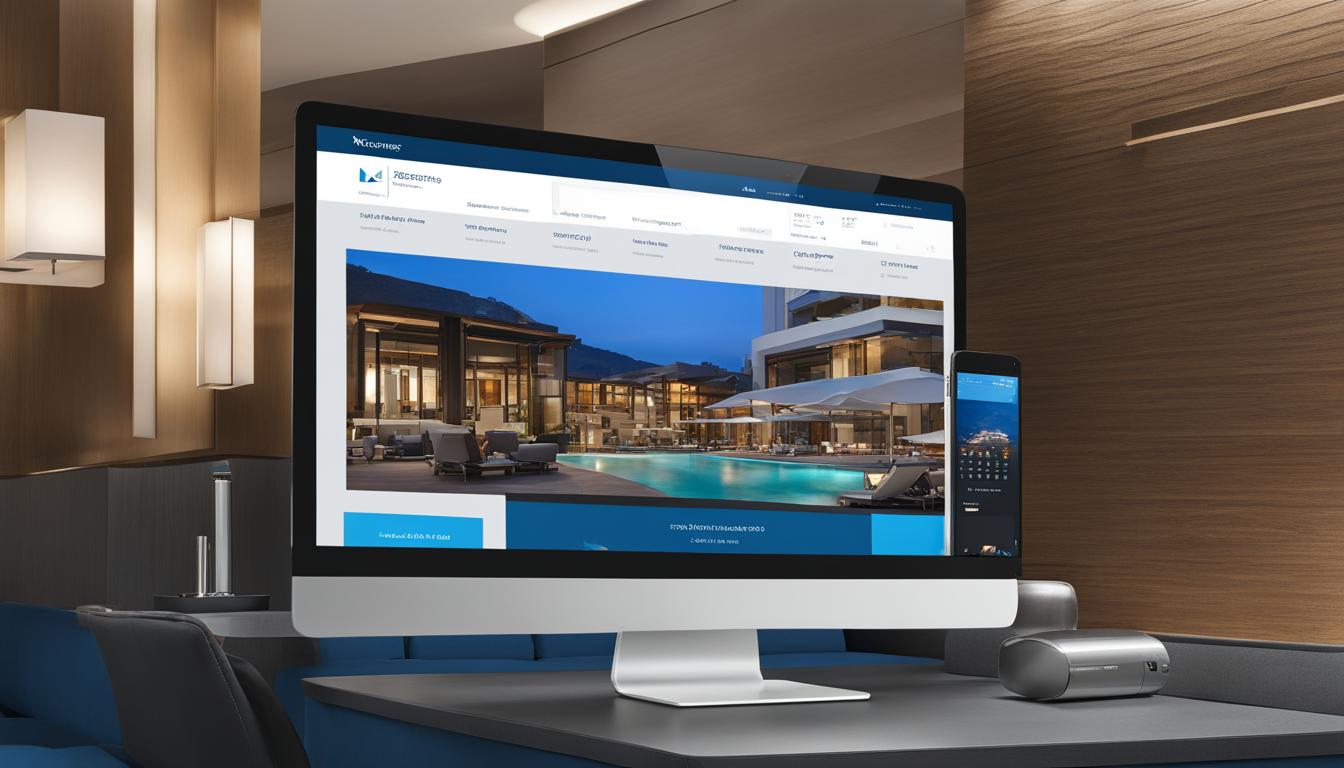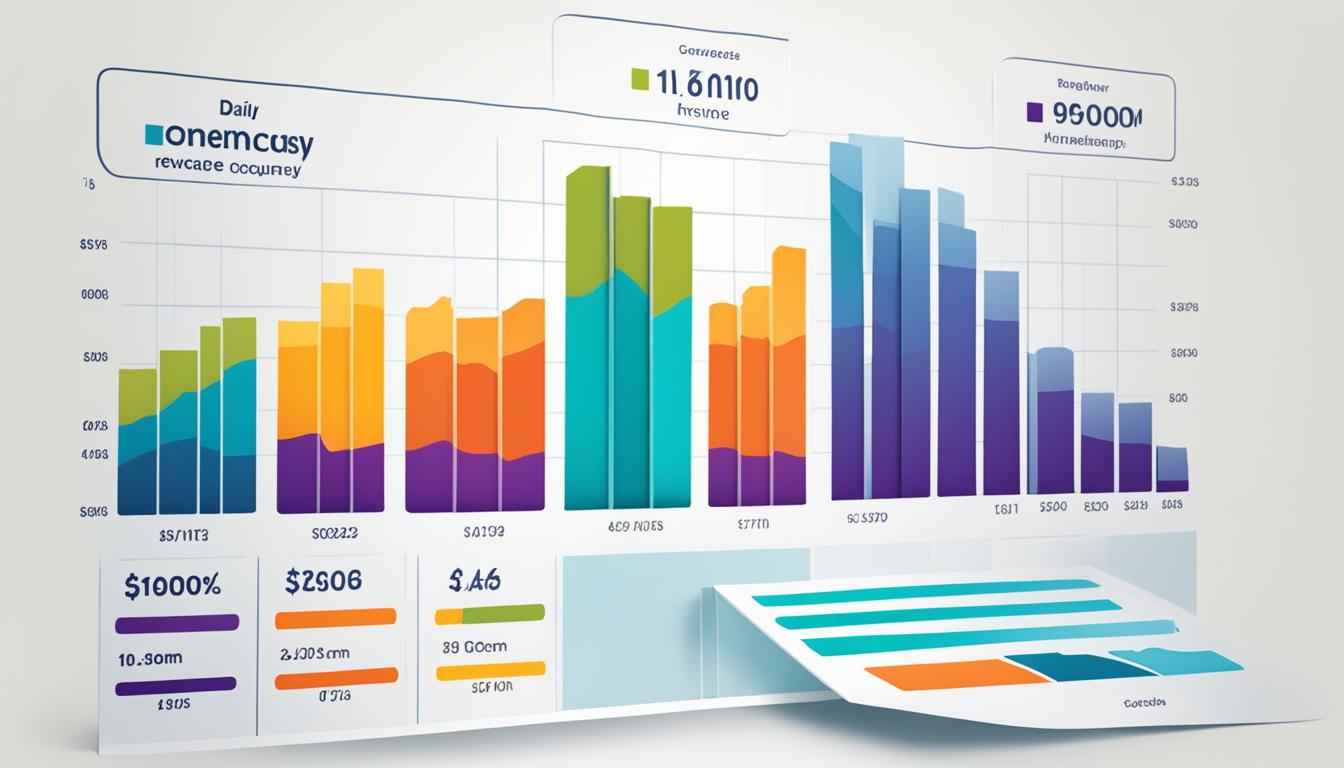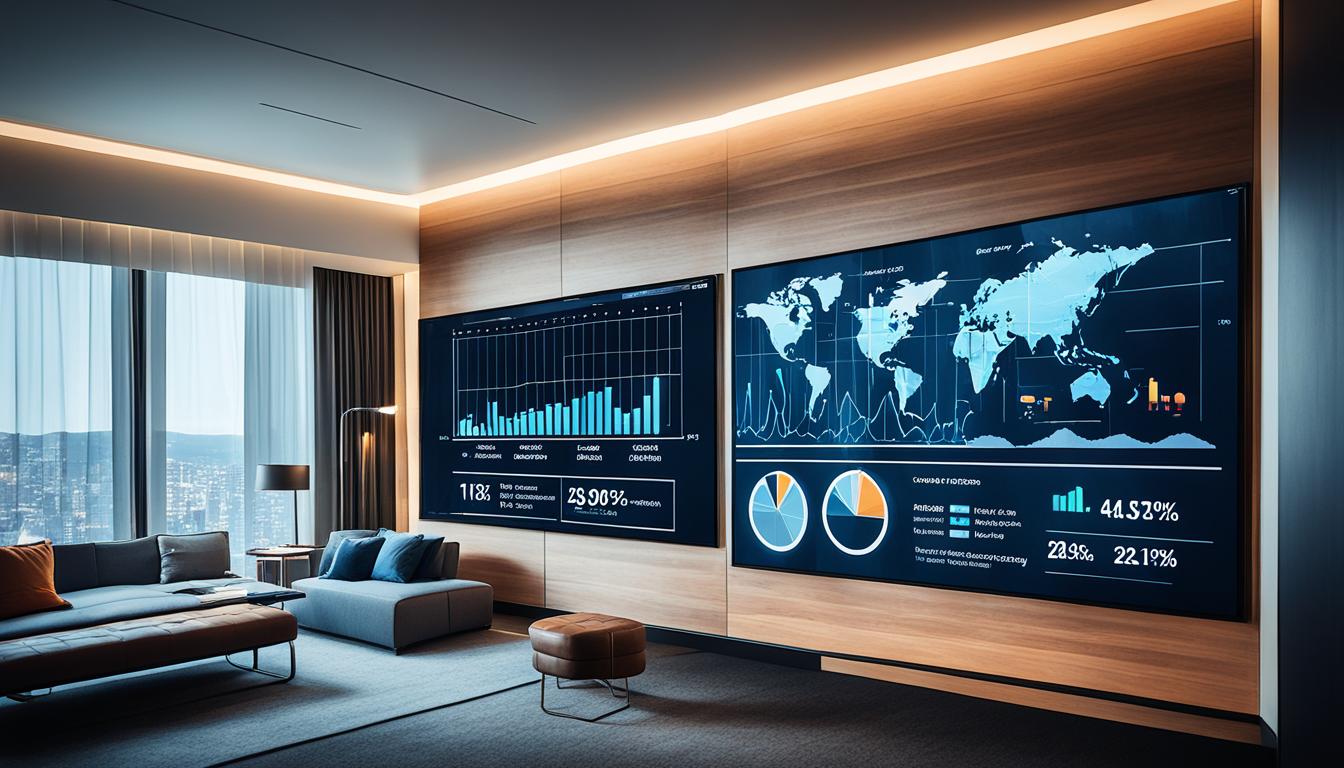Welcome to the world of hotel marketing, where storytelling is an art form that holds immense power. In this digital age, hotels have the opportunity to captivate their guests through compelling narratives that go beyond mere advertising. Storytelling allows hotels to forge emotional connections with their guests, creating memorable experiences that transcend the ordinary.
Storytelling in hotel marketing is not just about selling a room or a service. It is about creating an immersive experience that resonates with guests on a deeper level. Through the clever use of words, visuals, and emotions, hotels can transport their guests to a world where their desires and dreams become a reality.
Why is storytelling so important in hotel marketing? The answer lies in its ability to differentiate hotels from their competitors. In a crowded marketplace, where numerous hotels offer similar services, it is the stories that set them apart. By crafting narratives that are unique to their brand and guest experience, hotels can leave a lasting impression and build a loyal following.
But how can hotels effectively harness the power of storytelling in their marketing efforts? That’s where hotel website builder software comes into play. With the right tools and platforms, hoteliers can bring their stories to life on their websites, using captivating visuals, engaging content, and interactive features.
In addition to leveraging hotel website builder software, hotels can also enhance their storytelling through strategic hotel website marketing. By implementing digital marketing techniques such as content marketing, social media promotion, and email campaigns, hotels can amplify their storytelling efforts and reach a wider audience.
Furthermore, optimizing hotel websites for SEO is crucial in maximizing the impact of storytelling. By conducting keyword research, optimizing on-page content, and building quality backlinks, hotels can improve their search engine rankings, increase visibility, and attract organic traffic.
So, how can hotels craft a compelling narrative on their websites? It starts with captivating headlines that draw guests in and pique their curiosity. Accompanied by stunning visuals, immersive videos, and authentic guest testimonials, hotels can create a storytelling experience that leaves guests enchanted and eager to book their stay.
In conclusion, storytelling is the key to connecting with guests in hotel marketing. By embracing the art of storytelling, leveraging hotel website builder software, implementing effective hotel website marketing strategies, and optimizing their websites for SEO, hotels can create impactful narratives that resonate with their guests, fostering lasting connections and driving success.
The Importance of Storytelling in Hotel Marketing
In the competitive world of hotel marketing, the power of storytelling cannot be overstated. Stories have a unique ability to evoke emotions, create memorable experiences, and differentiate hotels from their competitors. By harnessing the art of storytelling, hotels can forge a deep connection with their guests and foster brand loyalty.
Storytelling goes beyond simply conveying information about a hotel; it taps into the desires, dreams, and aspirations of guests. When guests resonate with a hotel’s story, they become emotionally invested, forging a strong bond that goes beyond transactional relationships. These emotional connections drive guest loyalty and ultimately result in repeat bookings and positive word-of-mouth.
One key reason storytelling is crucial in hotel marketing is its power to create memorable experiences. Stories engage multiple senses, allowing guests to visualize themselves in the narrative. By immersing guests in a captivating story, hotels can transport them to a world of possibility, igniting their imagination and leaving a lasting impression.
Moreover, storytelling sets hotels apart from the competition in a crowded marketplace. In a commoditized industry where amenities and features can often be replicated, stories become a unique selling proposition. They provide a way for hotels to differentiate themselves by showcasing their personality, values, and the experiences they offer.
Hotel marketing has evolved beyond pure transactional messaging; it now aims to create authentic and immersive experiences. Guests seek more than just a place to stay; they yearn for hotels that share their values, resonate with their aspirations, and provide meaningful experiences. Storytelling is the vehicle that enables hotels to touch the hearts of their guests and create a lasting connection.
To effectively incorporate storytelling into hotel marketing, hoteliers must understand their target audience and craft narratives that resonate with them. By intimately knowing their guests’ desires, pain points, and aspirations, hotels can create stories that captivate their imagination and address their needs.
Storytelling can be woven into various marketing channels, including websites, social media, and email campaigns. By incorporating compelling narratives into these platforms, hotels can engage with guests on multiple touchpoints, reinforcing their brand story and building strong relationships.
Hotel marketing that embraces the power of storytelling not only captures the attention of guests but also leaves a lasting impact. Through the art of storytelling, hotels can go beyond selling rooms and create a meaningful and emotional connection that resonates with their guests long after their stay.
Leveraging Hotel Website Builder Software
When it comes to implementing effective storytelling strategies on hotel websites, hotel website builder software plays a crucial role. This powerful tool empowers hoteliers to create compelling narratives, engage guests with visually stunning content, and offer interactive experiences that leave a lasting impression.
With the help of hotel website builder software, hoteliers can bring their stories to life with ease. They can utilize intuitive design features to craft captivating web pages that showcase the unique experiences their hotel offers. From stunning imagery to immersive videos, hotel website builder software allows for the seamless integration of multimedia elements to enhance storytelling.
One key advantage of leveraging hotel website builder software is the ability to create interactive experiences for website visitors. Interactive features like virtual tours, interactive maps, and personalized recommendations can help guests connect with the hotel on a deeper level. By providing an interactive and engaging website experience, hotels can capture the attention and interest of potential guests.
Furthermore, hotel website builder software streamlines the process of updating and managing website content. Hoteliers can easily modify text, images, and multimedia elements without the need for coding or technical expertise. This enables hotels to keep their stories fresh and up-to-date, ensuring that guests are always provided with relevant and compelling content.
By leveraging hotel website builder software, hoteliers can tap into the power of storytelling to create an immersive online experience for guests. This not only enhances guest engagement but also strengthens the hotel’s brand image and fosters meaningful connections with potential guests. When combined with effective hotel website marketing strategies, hotel website builder software becomes an invaluable tool in the hotelier’s toolkit.
Enhancing Guest Engagement through Hotel Website Marketing
Hotel website marketing plays a crucial role in complementing the storytelling efforts of hotels, allowing them to effectively engage guests and create powerful connections. By implementing various digital marketing techniques, hotels can amplify their stories and cultivate a sense of excitement and anticipation among their target audience.
One of the key strategies hotels can adopt is content marketing. By producing valuable and relevant content, such as blog posts, articles, and destination guides, hotels can capture the attention of potential guests and showcase their unique storytelling narratives. This helps build trust and credibility, ultimately driving more conversions on their websites.
Social media promotion is another powerful tool in hotel website marketing. Hotels can leverage popular social media platforms like Facebook, Instagram, and Twitter to share their stories, engage with followers, and create a sense of community. Through visually appealing posts, captivating captions, and interactive elements, hotels can ignite the interest of potential guests and encourage them to explore more on their websites.
Email campaigns are an effective way to reach out to past and potential guests directly. By sending personalized and engaging emails, hotels can keep their audience informed about special offers, upcoming events, and new storytelling initiatives. This direct communication helps build lasting relationships and keeps the hotel top-of-mind for future travel plans.
Furthermore, hotels can tap into the power of user-generated content to enhance guest engagement. By encouraging guests to share their experiences through reviews, photos, and videos, hotels can leverage this authentic content to further amplify their storytelling narrative. This not only fosters a sense of community but also provides valuable social proof to potential guests.
Image:
Optimizing Hotel Websites for SEO
When it comes to hotel marketing, search engine optimization (SEO) plays a crucial role in ensuring your website receives maximum visibility and organic traffic. By optimizing your hotel website for SEO, you can enhance your storytelling efforts and connect with potential guests effectively.
One of the fundamental aspects of SEO is keyword research. Identifying the right keywords and incorporating them strategically throughout your website’s content can significantly improve your search engine rankings. Conduct thorough research to understand the words and phrases that potential guests are using to find hotels like yours, and integrate them naturally into your website copy.
On-page optimization is another critical factor in SEO success. This involves optimizing elements on your website pages, including meta tags, headings, URLs, and image alt tags. By following best practices and ensuring that these on-page elements accurately reflect your content and target keywords, you can improve your website’s visibility and click-through rates.
Link building is an essential off-page SEO strategy. Establishing high-quality backlinks from reputable sources strengthens your website’s authority and improves its search engine rankings. Focus on building relationships with relevant industry influencers, engaging in guest blogging opportunities, and leveraging social media platforms to amplify the reach of your hotel website.
It’s important to note that optimizing your hotel website for SEO is an ongoing process. Regularly monitoring and analyzing your website’s performance using analytics tools can help you identify areas for improvement and make data-driven decisions to enhance your SEO strategy continuously.
By prioritizing SEO optimization for your hotel website, you can increase its visibility, drive organic traffic, and ultimately attract more potential guests. Remember, an optimized website not only ranks higher in search results but also provides a seamless user experience, allowing guests to explore the unique story your hotel has to tell.
Crafting a Compelling Narrative on Hotel Websites
When it comes to hotel websites, crafting a compelling narrative is a powerful way to captivate and engage potential guests. A well-crafted narrative can evoke emotions, create a sense of connection, and ultimately influence booking decisions. Here, we’ll explore practical tips and techniques for crafting an impactful narrative that resonates with your audience.
1. Compelling Headlines: Start by creating captivating headlines that grab the attention of your website visitors. Use descriptive and engaging language that entices them to explore further.
2. Engaging Visuals: Incorporate high-quality visuals that showcase the unique features and ambiance of your hotel. Use professional photographs that highlight the beauty and comfort of your facilities.
3. Immersive Videos: Take storytelling a step further by including immersive videos on your website. Showcasing guest experiences, virtual tours, and behind-the-scenes footage can create a more personal and engaging narrative.
4. Guest Testimonials: Include authentic guest testimonials to add credibility and create social proof. These testimonials should highlight the unique experiences and exceptional service your hotel provides.
5. Authenticity and Personalization: Infuse your narrative with authenticity and personalization. Share the history, values, and local connections that make your hotel stand out. Create a sense of belonging and familiarity for your guests.
Crafting a compelling narrative on your hotel website is a collaborative effort that combines storytelling techniques with effective design and user experience. By focusing on creating an immersive and authentic experience, you can inspire your website visitors and increase the likelihood of bookings.
Conclusion
Storytelling plays a crucial role in hotel marketing by connecting with guests on a deeper level. Throughout this article, we have discussed the importance of storytelling in creating memorable experiences and differentiating hotels from competitors. By embracing the art of storytelling, hoteliers can foster stronger connections with their guests and build brand loyalty.
To effectively implement storytelling strategies, hoteliers can leverage hotel website builder software. This software allows them to create compelling narratives, engaging visuals, and interactive experiences on their websites, captivating guests from the moment they land on the page. By harnessing the power of storytelling through these digital platforms, hotels can create impactful narratives that resonate with their target audience.
However, storytelling shouldn’t stop at the website. Hoteliers should also utilize hotel website marketing strategies to amplify their stories. Through content marketing, social media promotion, and email campaigns, hotels can reach a wider audience and enhance guest engagement. User-generated content, such as guest reviews and testimonials, further contributes to building connections with potential guests.
Moreover, optimizing hotel websites for SEO is vital in ensuring that the stories are discovered by potential guests. By implementing essential SEO practices like thorough keyword research, on-page optimization, and strategic link building, hotels can increase visibility, drive organic traffic, and maximize the impact of their storytelling efforts.
In conclusion, storytelling is a powerful tool for hotels to connect with their guests. By embracing the art of storytelling, utilizing hotel website builder software, implementing effective hotel website marketing strategies, and optimizing their websites for SEO, hoteliers can create impactful narratives that leave a lasting impression on their guests, ultimately leading to increased bookings and brand loyalty.







